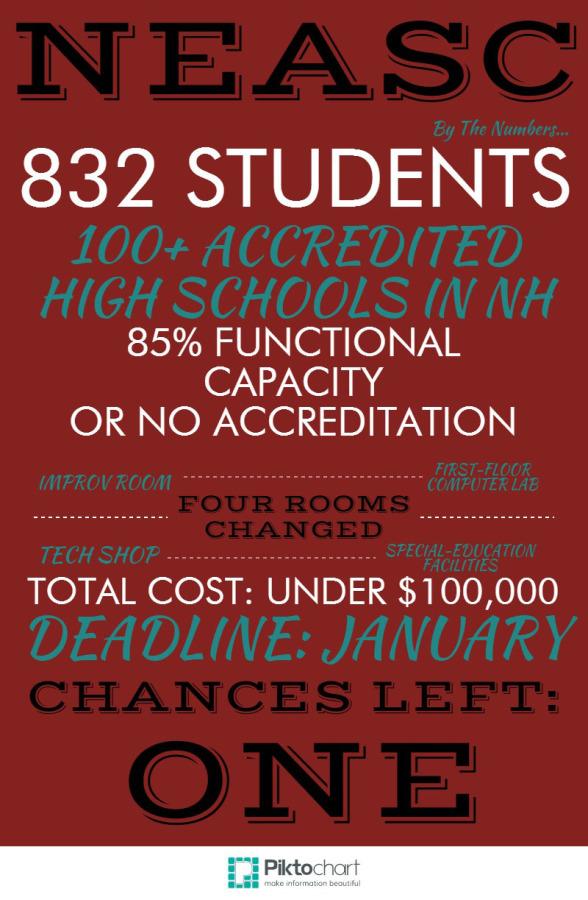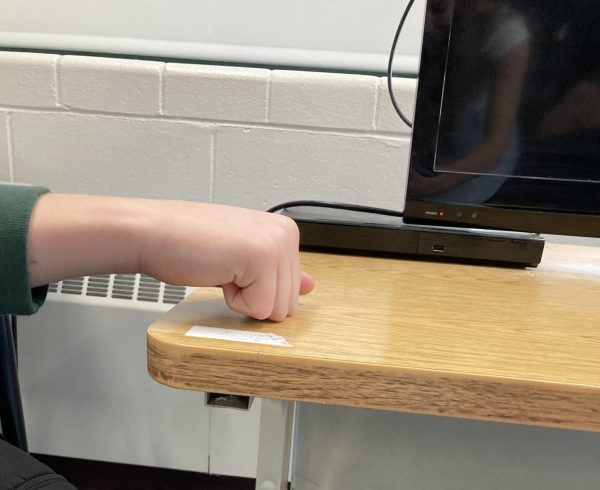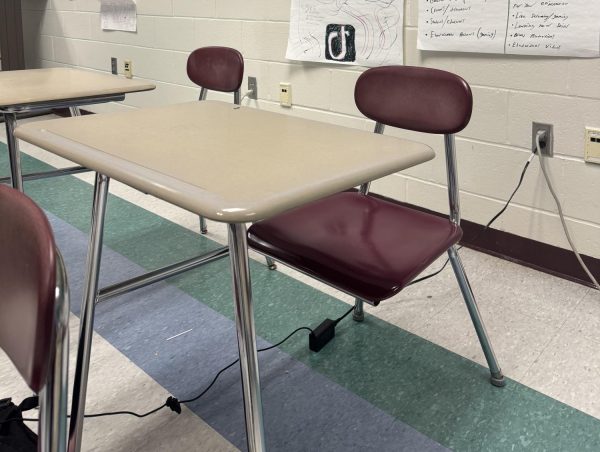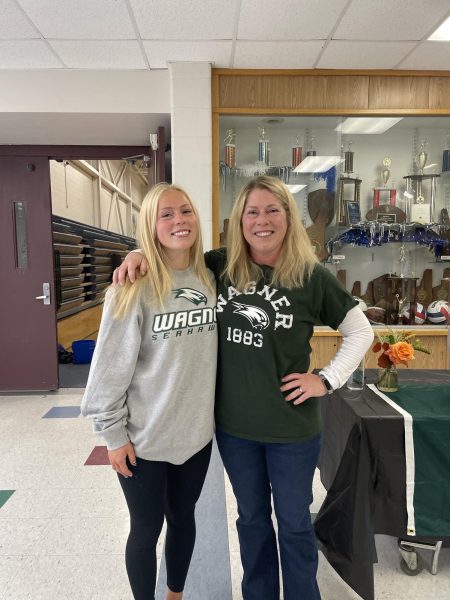Accreditation: Our School In Flux
Last year, the biggest fear at Hollis Brookline was not AP Tests, graduation, or even final exams. No, it was the looming threat of losing our accreditation.
Accreditation is a title given by the New England Association of Schools and Colleges (NEASC). It’s a way of giving schools an award for excellence in education.
According to the NEASC website, there are three steps that a school needs to take in order to achieve accreditation: Self-Study, Peer Review, and Follow-up. In laymen’s terms, a school must look at what it needs to improve, other schools must look at the same problems, the school must make those changes, and then NEASC makes a final assessment.
These steps can be problematic for schools and one of the biggest issues is funding. Many schools can’t afford to keep up with the changes NEASC requires. This is also the major issue with Hollis-Brookline–somehow, one of the smallest schools in the state has become overcrowded.
Last year, a vote was held to call into question a new addition that would expand the school and add an new athletic field. It failed.
Essentially, this meant that the school district had a problem, one crucial to solve. So over the summer, while students and staff enjoyed a vacation, the school underwent massive changes.
Computer Lab 141 has become two rooms rather than one, optimize computer space.
The Robotics Tech lab moved to the Middle School.
Lab 310 is now a teacher work space.
The list goes on and on. But, what do these changes really mean for Hollis Brookline, and more importantly, the future of its students? I sat down with Superintendent Andrew Corey, who shed light on the future of Hollis Brookline.
Cate: Why is Accreditation important to Hollis Brookline?
Corey: “Well, two things; one, its a good way to self reflect. If done correctly, the report that we file, would be a critique of our High School. The recommendations that we make, allow us to move forward. And, going along with that first point, you have an outside group of people, who validate what we’re stating in the report. They then commend us for certain changes, and also point out what we need to work on.”
Cate: What does Accreditation mean for students?
Corey: “When you’re applying for colleges, as a senior, the colleges look at whether or not your high school is accredited. The accreditation shows the colleges that we, as a school, have prepared you for college. Not only from our own standards, but from the outside source of NEASC officials.”
Cate: Is Hollis Brookline still on Probation?
Corey: “No, we are not. What I would call it, is more of a warning status. I feel very confident in the report that we filed, that NEASC will be pleased with the changes.”
Cate: Are there any changes that haven’t been completed yet?
Corey: “Great question. One example that is concrete, because we did it last night at the board meeting, is a comprehensive review of our curriculum. Where are we with 21st Century skills? What do the common core standards mean in relation to our time tested curriculum. However, we don’t want to throw away the parts of our curriculum that work. We want to make our curriculum work for every student.”
It seems that Hollis Brookline has gone the extra mile to ensure that accreditation will not be revoked in the near future.. While it may not seem like a huge issue to the Classes of ‘15 and ‘16, for underclassmen, NEASC approval will be a huge factor in college acceptance. Colleges not only look at grades and classes, they also look at the people teaching them–and if teachers are working at a non-accredited school, this creates suspicion in the College Admissions world as to whether or not instruction is of an acceptable quality.
With the impending review of curriculum, students, staff, and administration will all have to re-evaluate how the school goes about its operations. And while these new changes may leave students wondering why, they are for the better.
NEASC’s finalized report arrives at the end of this month, and Hollis Brookline will finally know whether or not the changes have sufficed.

Evan Moloney is a first-year Journalism student and a Senior at HB. As the CavChron’s News Editor, he seeks to create a base of reference for students...









![Students in Archaeology use tools in a mock excavation. As a class that focuses on hands-on learning, students are able to gain crucial life skills. “[The class] is more hands-on than I thought, and I'm learning way more with physical activities than I do in the classroom,” said student Tess Brown ‘25.](https://cavchronline.com/wp-content/uploads/2024/11/IMG_8390-e1733078359165-556x600.jpg)



